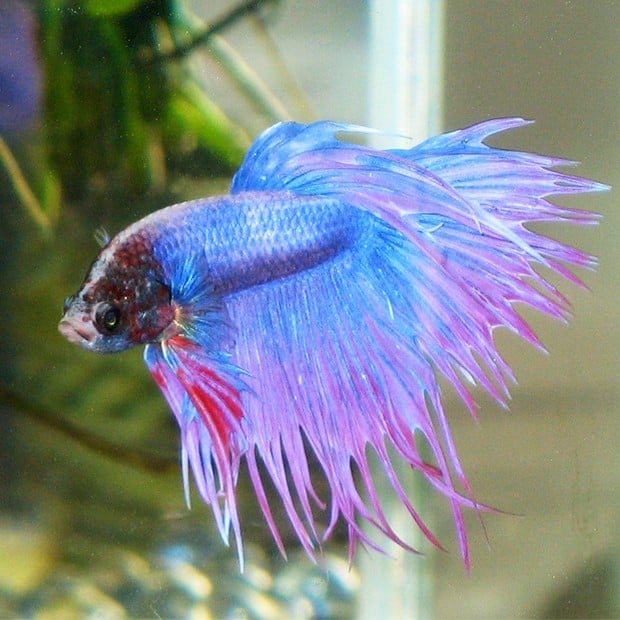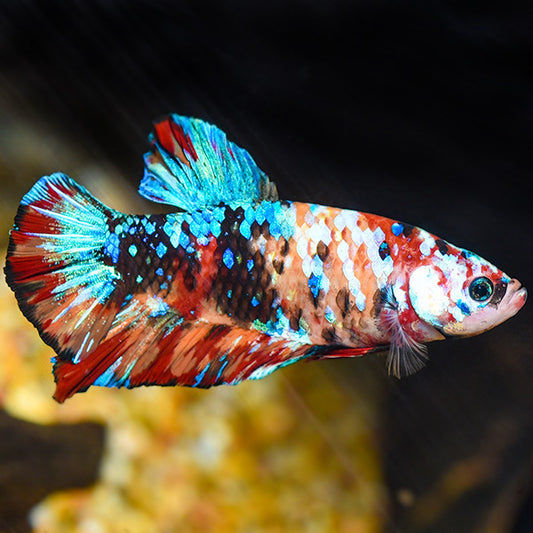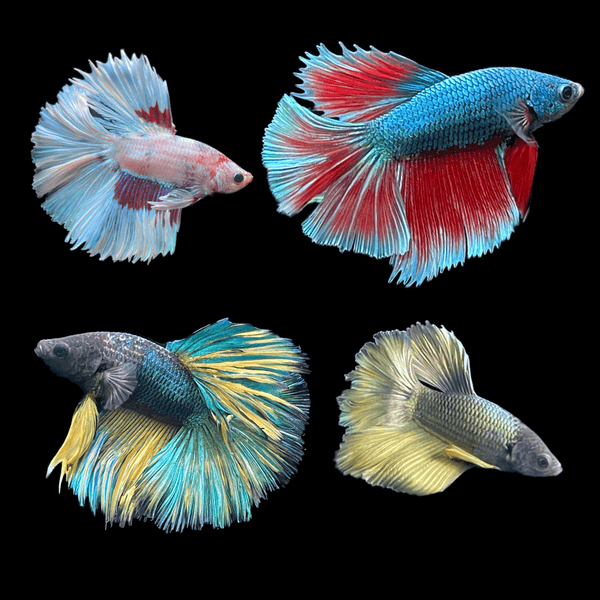The Ultimate Guide to Betta Fish Care: Essential Tips for Maintaining a Healthy and Successful Fish Tank Setting
Reliable Betta fish treatment demands an extensive understanding of their special ecological and physical requirements. Developing an ideal fish tank starts with picking the right tank size and making certain optimal water conditions, which are critical for the health and health of your Betta. Recognizing appropriate feeding practices and developing a conducive environment can considerably affect your fish's vitality and behavior. As you take into consideration these fundamental elements, it becomes clear that keeping a growing aquarium environment calls for interest to detail and recurring commitment. What details approaches will you carry out to enhance your Betta's lifestyle?
Choosing the Right Container
Selecting the ideal storage tank for your Betta fish is essential to guaranteeing its health and health. Bettas thrive in atmospheres that mimic their all-natural habitats, which usually include calmness, warm waters. A container size of at the very least five gallons is recommended to give sufficient swimming room, as smaller sized tanks can cause tension and health problems for these vivid fish.
When selecting a container, think about the storage tank's shape and purification system. A rectangular storage tank is more suitable to a bowl, as it uses much more area for oxygen exchange. In addition, a trustworthy filtration system is vital to preserve water high quality and decrease the frequency of water modifications (betta fish). However, it is very important to select a filter with a mild circulation, as Bettas are not solid swimmers and may resist solid currents.
Temperature level guideline is one more crucial factor; Bettas favor water temperature levels between 76 ° F and 82 ° F. Purchasing an excellent heating unit will make certain that the water stays within this range, advertising a healthy and energetic way of living for your Betta. Finally, providing ideal storage tank decorations and concealing areas will certainly assist reduce stress and anxiety and motivate all-natural habits, further improving your Betta's wellness.
Preserving Water Quality
Preserving optimal water high quality is necessary for the health and durability of Betta fish. This calls for regular surveillance of various specifications, consisting of temperature level, pH, ammonia, nitrite, and nitrate levels. Bettas flourish in temperature levels in between 76 ° F and 82 ° F, so keeping a stable temperature level is essential. Unexpected variations can result in anxiety and illness.
Normal testing utilizing a trusted water screening kit can assist ensure these parameters continue to be within the ideal varieties. Ammonia and nitrite degrees ought to constantly be at 0 ppm, as also reduced focus can be hazardous to Betta fish.
Routine water adjustments are crucial to maintaining water top quality. Furthermore, incorporating a robust purification system can help in maintaining water clarity and top quality, supplying a healthier environment for your Betta fish.
Ideal Feeding Practices
Supplying a balanced diet regimen is critical for the wellness and lively coloration of Betta fish, as their nutritional demands play a considerable duty in their general health. Betta fish are carnivorous naturally, calling for a diet plan high in healthy protein. A combination of high-grade pellets, frozen or real-time foods such as bloodworms, brine shrimp, and daphnia can supply the essential nutrients they need.
Feed your Betta fish a couple of times a day, supplying only what they can eat within a couple of minutes to protect against overfeeding and preserve water top quality. Overfeeding can lead to weight problems and health problems, consisting of swim bladder disease. It is necessary to monitor their dietary consumption and change section sizes as necessary.
In addition to protein, a balanced diet plan must include minerals and vitamins to advertise optimum health. Consider supplementing their diet with top notch flakes or pellets see this here specifically formulated for Betta fish, as these commonly contain necessary additives.

Producing a Suitable Environment

Water quality is vital; keep a temperature between 76 ° F and 82 ° F, and make sure the pH degree ranges from 6 - betta fish.5 to 7.5. Regular water modifications of 25-50% weekly will certainly help keep toxic substances away and make certain a stable atmosphere
Integrating plants and concealing places is crucial, as Betta fish are naturally territorial and take pleasure in having locations to discover and retreat. Live or silk plants, along with caverns and accessories, can develop a revitalizing environment.

Routine Health Checkups
Performing regular wellness appointments is vital for making certain the wellness of Betta fish, as very early detection of potential problems can prevent severe health troubles. These examinations ought to incorporate a complete examination of the fish's physical problem, actions, and environmental variables.
Begin by observing the Betta fish for any signs of distress, such as lethargy, anorexia nervosa, or uncommon swimming patterns. Additionally, check the fins and body for indicators of discoloration, sores, or fin rot, which can show infections or parasites. Regularly checking the water quality in the aquarium is just as crucial; specifications such as pH, ammonia, nitrite, and nitrate degrees read the article should be preserved within optimum arrays to stop anxiety and ailment.
Furthermore, think about keeping a log of health observations and water high quality tests. This document can promote the recognition of fads or recurring issues. If any type of irregularities are identified throughout the checkup, it is important to seek advice from a vet experienced in marine pets. Prompt treatment can make a substantial distinction in the recuperation of your Betta fish, ensuring a long and healthy life in a well-maintained aquarium setting.
Verdict
In conclusion, effective Betta fish treatment hinges on creating and maintaining an optimum fish tank environment. By following these standards, aquarists can advertise the health and vibrancy of Betta fish, ultimately resulting in a growing water community.
Comments on “Typical Betta Fish Diseases and How to Prevent Them”